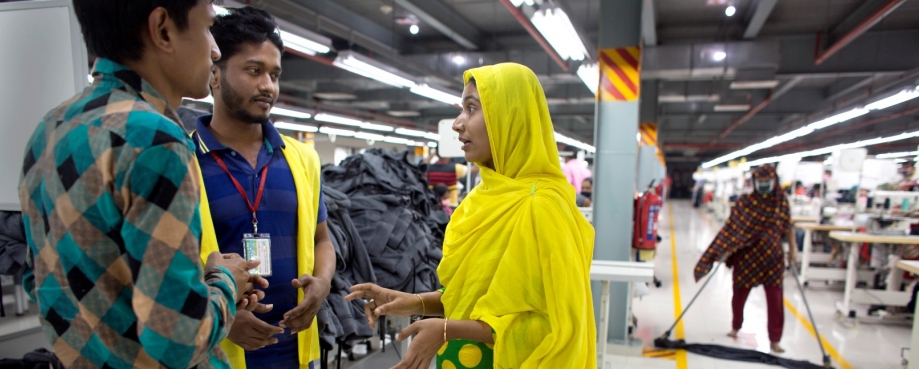
ETI is very concerned about the recent mass dismissals of garment workers in Bangladesh. Additionally, we are troubled about the reportedly violent reaction of some of the policing authorities.
In Bangladesh, the garment industry is subject to a number of pressures. This includes increased costs, automation and price pressures among others and can result in change and sometimes job losses.
However, even when dismissals are justified by business realities, workers should still be treated with dignity. They should either be offered alternatives, or if let go, should be paid outstanding wages and benefits in a managed process.
ETI is particularly concerned that the current wave of sackings is being exploited by some to undermine trade union membership and punish those who have actively argued for improved working conditions.
It is important to stress that this would be completely at odds with ETI’s Base Code of labour conduct, the second clause of which emphasises the right to freedom of association, to collective bargaining and to worker representation.
We note that terminated and suspended workers were working for companies producing for several global brands, including ETI members.
Consequently, one of our members, H&M, has taken a positive step to create National Monitoring Committees (NMCs) to assist with managing such conflicts peacefully. These include local trade union and H&M group representatives, IndustriALL Global Union and the Swedish trade union IF Metall.
While ETI cannot condone any protest that becomes violent, nor any destruction of property, we passionately support the right to peaceful protest. Our members are in close contact with their suppliers. They will be ensuring that any terminations of employment are for valid reasons and will ensure that suppliers can demonstrate that Bangladesh labour law has been followed.
In Bangladesh, ETI staff are implementing a programme to improve dialogue between workers and management and build workers' ability to represent their needs. This has reached nearly 100,000 workers in 50 factories.
The image is courtesy of the ILO and is for illustrative purposes only.
